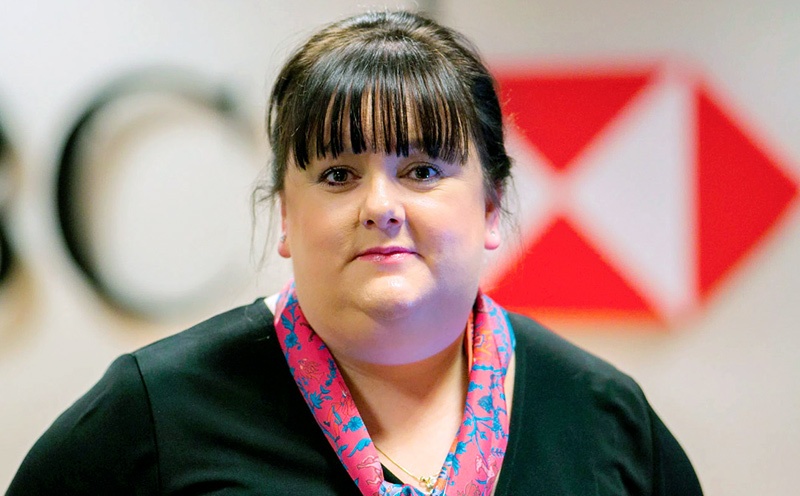Green investment requires collective efforts from all
From an international perspective, what are the opportunities and challenges for investing in Vietnam’s growing economy?
We acknowledge the positive sentiment surrounding Vietnam’s investment prospects, key opportunities such as a skilled workforce, a young and expanding consumer class, competitive wage prices, and favourable supply chain dynamics. International companies, particularly those from China, India, and the US, are showing great enthusiasm for these opportunities.
However, challenges remain, notably the need to attract expertise in sustainability and foster a competitive environment. Vietnam must prioritise efficiency, establish a robust governance framework, and provide clarity in its rules to instil confidence among businesses seeking to invest in the country.
 |
| Amanda Murphy, head of Commercial Banking for South and Southeast Asia at HSBC Asia-Pacific |
How does the new legal framework for energy development impact investment and sustainability?
The recently issued legal framework for energy development in Vietnam marks a significant step forward. It provides certainty and clarity to investors, addressing the delays experienced in energy-related projects. The framework includes the creation of a feed-in tariff process, specifying ceiling prices for projects delayed due to the pandemic.
We view this framework as positive, aligning with the government’s commitment to achieving net-zero emissions by 2050.
What is your take on the suggestion to establish an energy development bank to address the limitations faced by commercial banks in providing long-term credit for energy projects?
We emphasise the importance of collaboration between various stakeholders, including banks, governments, and private entities. While recognising the value of long-term credit for energy projects, we note that the financing required for a successful transition to sustainability cannot be shouldered by a single bank or government.
Instead, a mix of private and public partnerships is crucial to mobilise the necessary funds and expertise. We believe in the power of collaboration and aims to play a significant role in supporting sustainable projects through its financing commitments.
Can you provide examples of countries that Vietnam can learn from in its sustainable investment journey?
Vietnam is already positioned as a leading country in the region in terms of sustainable investment commitments, trailing only behind Thailand.
While acknowledging that Europe is more advanced in some aspects of sustainability, we see the rapid progress being made in Asia and the Middle East. Notably, Vietnam’s commitment to achieving net-zero emissions sets it apart from many larger countries in the region. Thus, the transition to sustainability requires collective effort and learning from various countries and regions to accelerate progress effectively.
What role does HSBC play in Vietnam’s just energy transition and green financing?
HSBC actively supports Vietnam’s just energy transition and aims to be a key contributor to the country’s green financing efforts. We recognise Vietnam’s commitment to mobilising $15.5 billion in public and private funding over the next 3-5 years for the green transition.
We align our ambition to transition to net-zero emissions by 2050 with Vietnam’s goals, supporting the retirement of coal plants and facilitating green projects.
As Vietnam continues to navigate challenges and strengthen its legal framework, HSBC remains committed to supporting sustainable practices, fostering fintech partnerships, and facilitating green finance to contribute to the country’s thriving business landscape and its transition towards a greener future.
What is HSBC’s stance on fintech partnerships and their role in the banking sector?
Rather than perceiving each other as competitors, fintech should be viewed as complementary forces, each contributing unique strengths to the financial ecosystem.
We place great value on the inherent advantages that banks bring to the table, including their extensive scale, robust resilience, and profound expertise in product knowledge. These attributes enable banks to establish a solid foundation and provide a wide range of services to customers.
On the other hand, fintech companies are renowned for their entrepreneurial spirit and penchant for innovative approaches. They excel in developing cutting-edge technologies, exploring new business models, and rapidly adapting to the evolving needs of customers.
 | Institutions gearing up for green growth revolution Asia’s demand for carbon offsets is increasing as more global supply chains, manufacturing, and banking sectors attempt to reduce their carbon impact – in which Vietnam may be the ideal location for a green investment wave. |
 | European investors eye greener incentives European enterprises are focusing more and more on green investments to tap into fresh opportunities from Vietnam’s actions to achieve net zero by 2050, but they need legal improvements and incentives to facilitate their plans. |
 | Clearer standards for green Asian projects to hit net-zero The world needs more green investment than ever if we are to achieve net-zero by 2050, but rising interest rates, constraints on public finances, and persistent confusion over the definition of what constitutes a green investment are all conspiring to make it harder to fund sustainable projects. |
What the stars mean:
★ Poor ★ ★ Promising ★★★ Good ★★★★ Very good ★★★★★ Exceptional
Related Contents
Latest News
More News
- Private capital funds as cornerstone of IFC plans (February 20, 2026 | 14:38)
- Priorities for building credibility and momentum within Vietnamese IFCs (February 20, 2026 | 14:29)
- How Hong Kong can bridge critical financial centre gaps (February 20, 2026 | 14:22)
- All global experiences useful for Vietnam’s international financial hub (February 20, 2026 | 14:16)
- Raised ties reaffirm strategic trust (February 20, 2026 | 14:06)
- Sustained growth can translate into income gains (February 19, 2026 | 18:55)
- The vision to maintain a stable monetary policy (February 19, 2026 | 08:50)
- Banking sector faces data governance hurdles in AI transition (February 19, 2026 | 08:00)
- AI leading to shift in banking roles (February 18, 2026 | 19:54)
- Digital banking enters season of transformation (February 16, 2026 | 09:00)

 Tag:
Tag:



















 Mobile Version
Mobile Version